Solar System: Things To Know This Week
Solar System: Things to Know This Week
There’s even more to Mars.

1. Batten Down the Hatches
Good news for future astronauts: scientists are closer to being able to predict when global dust storms will strike the Red Planet. The winds there don’t carry nearly the same force that was shown in the movie “The Martian,” but the dust lofted by storms can still wreak havoc on people and machines, as well as reduce available solar energy. Recent studies indicate a big storm may be brewing during the next few months.
+ Get the full forecast

2. Where No Rover Has Gone Before
Our Opportunity Mars rover will drive down an ancient gully that may have been carved by liquid water. Several spacecraft at Mars have observed such channels from a distance, but this will be the first up-close exploration. Opportunity will also, for the first time, enter the interior of Endeavour Crater, where it has worked for the last five years. All this is part of a two-year extended mission that began Oct. 1, the latest in a series of extensions going back to the end of Opportunity’s prime mission in April 2004. Opportunity landed on Mars in January of that year, on a mission planned to last 90 Martian days (92.4 Earth days). More than 12 Earth years later, it’s still rolling.
+ Follow along + See other recent pictures from Endeavour Crater

3. An Uphill Climb
Opportunity isn’t the only NASA Mars rover getting a mission extension. On the other side of the planet, the Curiosity rover is driving and collecting samples amid some of the most scenic landscapes ever visited on Mars. Curiosity’s two-year mission extension also began Oct. 1. It’s driving toward uphill destinations, including a ridge capped with material rich in the iron-oxide mineral hematite, about a mile-and-a-half (two-and-a-half kilometers) ahead. Beyond that, there’s an exposure of clay-rich bedrock. These are key exploration sites on lower Mount Sharp, which is a layered, Mount-Rainier-size mound where Curiosity is investigating evidence of ancient, water-rich environments that contrast with the harsh, dry conditions on the surface of Mars today.
+ Learn more

4. Keep a Sharp Lookout
Meanwhile, the Mars Reconnaissance Orbiter continues its watch on the Red Planet from above. The mission team has just released a massive new collection of super-high-resolution images of the Martian surface.
+ Take a look

5. 20/20 Vision for the 2020 Rover
In the year 2020, Opportunity and Curiosity will be joined by a new mobile laboratory on Mars. In the past week, we tested new “eyes” for that mission. The Mars 2020 rover’s Lander Vision System helped guide the rocket to a precise landing at a predesignated target. The system can direct the craft toward a safe landing at its primary target site or divert touchdown toward better terrain if there are hazards in the approaching target area.
+ Get details
Discover the full list of 10 things to know about our solar system this week HERE.
Make sure to follow us on Tumblr for your regular dose of space: http://nasa.tumblr.com
More Posts from Evisno and Others
Galaxies: Types and morphology
A galaxy is a gravitationally bound system of stars, stellar remnants, interstellar gas, dust, and dark matter. Galaxies range in size from dwarfs with just a few hundred million (108) stars to giants with one hundred trillion (1014) stars, each orbiting its galaxy’s center of mass.

Galaxies come in three main types: ellipticals, spirals, and irregulars. A slightly more extensive description of galaxy types based on their appearance is given by the Hubble sequence.

Since the Hubble sequence is entirely based upon visual morphological type (shape), it may miss certain important characteristics of galaxies such as star formation rate in starburst galaxies and activity in the cores of active galaxies.
Ellipticals

The Hubble classification system rates elliptical galaxies on the basis of their ellipticity, ranging from E0, being nearly spherical, up to E7, which is highly elongated. These galaxies have an ellipsoidal profile, giving them an elliptical appearance regardless of the viewing angle. Their appearance shows little structure and they typically have relatively little interstellar matter. Consequently, these galaxies also have a low portion of open clusters and a reduced rate of new star formation. Instead they are dominated by generally older, more evolved stars that are orbiting the common center of gravity in random directions.
Spirals

Spiral galaxies resemble spiraling pinwheels. Though the stars and other visible material contained in such a galaxy lie mostly on a plane, the majority of mass in spiral galaxies exists in a roughly spherical halo of dark matter that extends beyond the visible component, as demonstrated by the universal rotation curve concept.
Spiral galaxies consist of a rotating disk of stars and interstellar medium, along with a central bulge of generally older stars. Extending outward from the bulge are relatively bright arms. In the Hubble classification scheme, spiral galaxies are listed as type S, followed by a letter (a, b, or c) that indicates the degree of tightness of the spiral arms and the size of the central bulge.
Barred spiral galaxy

A majority of spiral galaxies, including our own Milky Way galaxy, have a linear, bar-shaped band of stars that extends outward to either side of the core, then merges into the spiral arm structure. In the Hubble classification scheme, these are designated by an SB, followed by a lower-case letter (a, b or c) that indicates the form of the spiral arms (in the same manner as the categorization of normal spiral galaxies).
Ring galaxy

A ring galaxy is a galaxy with a circle-like appearance. Hoag’s Object, discovered by Art Hoag in 1950, is an example of a ring galaxy. The ring contains many massive, relatively young blue stars, which are extremely bright. The central region contains relatively little luminous matter. Some astronomers believe that ring galaxies are formed when a smaller galaxy passes through the center of a larger galaxy. Because most of a galaxy consists of empty space, this “collision” rarely results in any actual collisions between stars.
Lenticular galaxy

A lenticular galaxy (denoted S0) is a type of galaxy intermediate between an elliptical (denoted E) and a spiral galaxy in galaxy morphological classification schemes. They contain large-scale discs but they do not have large-scale spiral arms. Lenticular galaxies are disc galaxies that have used up or lost most of their interstellar matter and therefore have very little ongoing star formation. They may, however, retain significant dust in their disks.
Irregular galaxy

An irregular galaxy is a galaxy that does not have a distinct regular shape, unlike a spiral or an elliptical galaxy. Irregular galaxies do not fall into any of the regular classes of the Hubble sequence, and they are often chaotic in appearance, with neither a nuclear bulge nor any trace of spiral arm structure.
Dwarf galaxy

Despite the prominence of large elliptical and spiral galaxies, most galaxies in the Universe are dwarf galaxies. These galaxies are relatively small when compared with other galactic formations, being about one hundredth the size of the Milky Way, containing only a few billion stars. Ultra-compact dwarf galaxies have recently been discovered that are only 100 parsecs across.
Interacting

Interactions between galaxies are relatively frequent, and they can play an important role in galactic evolution. Near misses between galaxies result in warping distortions due to tidal interactions, and may cause some exchange of gas and dust. Collisions occur when two galaxies pass directly through each other and have sufficient relative momentum not to merge.
Starburst

Stars are created within galaxies from a reserve of cold gas that forms into giant molecular clouds. Some galaxies have been observed to form stars at an exceptional rate, which is known as a starburst. If they continue to do so, then they would consume their reserve of gas in a time span less than the lifespan of the galaxy. Hence starburst activity usually lasts for only about ten million years, a relatively brief period in the history of a galaxy.
Active galaxy
A portion of the observable galaxies are classified as active galaxies if the galaxy contains an active galactic nucleus (AGN). A significant portion of the total energy output from the galaxy is emitted by the active galactic nucleus, instead of the stars, dust and interstellar medium of the galaxy.

The standard model for an active galactic nucleus is based upon an accretion disc that forms around a supermassive black hole (SMBH) at the core region of the galaxy. The radiation from an active galactic nucleus results from the gravitational energy of matter as it falls toward the black hole from the disc. In about 10% of these galaxies, a diametrically opposed pair of energetic jets ejects particles from the galaxy core at velocities close to the speed of light. The mechanism for producing these jets is not well understood.

The main known types are: Seyfert galaxies, quasars, Blazars, LINERS and Radio galaxy.
source
images: NASA/ESA, Hubble (via wikipedia)




The latest from Brock Davis - love his work!






death of a star by a supernova explosion,
and the birth of a black hole
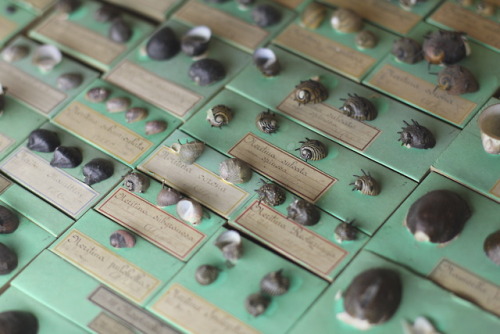
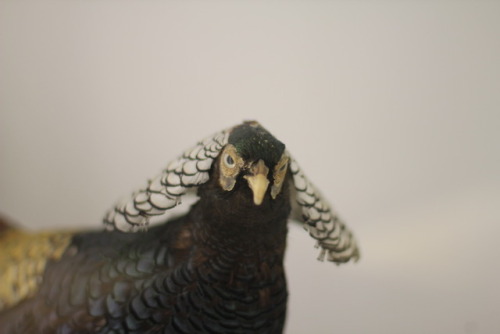
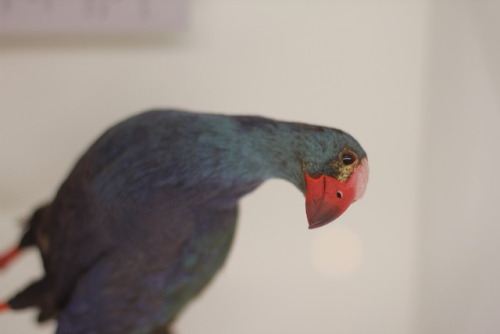




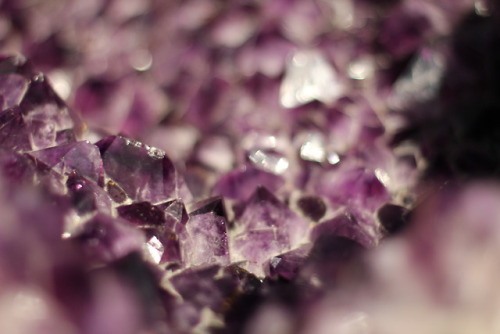

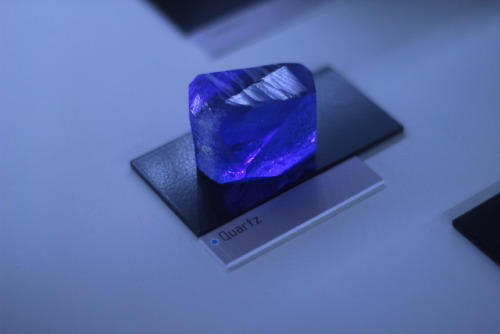
I visited Nantes’ Natural History Museum.

Outi on the couch - Sievänen, Jaakko 1974
Finnish,1932-2013
oil and tempera on canvas , 135,5 x 160,5 cm.

1976 … space station colonies
by x-ray delta one

Zeta Ophiuchus
A massive star plowing through the gas and dust floating in space. Zeta Oph is a bruiser, with 20 times the Sun’s mass. It’s an incredibly luminous star, blasting out light at a rate 80,000 times higher than the Sun! Even at its distance of 400 light years or so, it should be one of the brightest stars in the sky … yet it actually appears relatively dim to the eye.
Credit: NASA/Hubble

I believe in free education, one that’s available to everyone; no matter their race, gender, age, wealth, etc… This masterpost was created for every knowledge hungry individual out there. I hope it will serve you well. Enjoy!
FREE ONLINE COURSES (here are listed websites that provide huge variety of courses)
Alison
Coursera
FutureLearn
open2study
Khan Academy
edX
P2P U
Academic Earth
iversity
Stanford Online
MIT Open Courseware
Open Yale Courses
BBC Learning
OpenLearn
Carnegie Mellon University OLI
University of Reddit
Saylor
IDEAS, INSPIRATION & NEWS (websites which deliver educational content meant to entertain you and stimulate your brain)
TED
FORA
Big Think
99u
BBC Future
Seriously Amazing
How Stuff Works
Discovery News
National Geographic
Science News
Popular Science
IFLScience
YouTube Edu
NewScientist
DIY & HOW-TO’S (Don’t know how to do that? Want to learn how to do it yourself? Here are some great websites.)
wikiHow
Wonder How To
instructables
eHow
Howcast
MAKE
Do it yourself
FREE TEXTBOOKS & E-BOOKS
OpenStax CNX
Open Textbooks
Bookboon
Textbook Revolution
E-books Directory
FullBooks
Books Should Be Free
Classic Reader
Read Print
Project Gutenberg
AudioBooks For Free
LibriVox
Poem Hunter
Bartleby
MIT Classics
Many Books
Open Textbooks BCcampus
Open Textbook Library
WikiBooks
SCIENTIFIC ARTICLES & JOURNALS
Directory of Open Access Journals
Scitable
PLOS
Wiley Open Access
Springer Open
Oxford Open
Elsevier Open Access
ArXiv
Open Access Library
LEARN:
1. LANGUAGES
Duolingo
BBC Languages
Learn A Language
101languages
Memrise
Livemocha
Foreign Services Institute
My Languages
Surface Languages
Lingualia
OmniGlot
OpenCulture’s Language links
2. COMPUTER SCIENCE & PROGRAMMING
Codecademy
Programmr
GA Dash
CodeHS
w3schools
Code Avengers
Codelearn
The Code Player
Code School
Code.org
Programming Motherf*?$%#
Bento
Bucky’s room
WiBit
Learn Code the Hard Way
Mozilla Developer Network
Microsoft Virtual Academy
3. YOGA & MEDITATION
Learning Yoga
Learn Meditation
Yome
Free Meditation
Online Meditation
Do Yoga With Me
Yoga Learning Center
4. PHOTOGRAPHY & FILMMAKING
Exposure Guide
The Bastards Book of Photography
Cambridge in Color
Best Photo Lessons
Photography Course
Production Now
nyvs
Learn About Film
Film School Online
5. DRAWING & PAINTING
Enliighten
Ctrl+Paint
ArtGraphica
Google Cultural Institute
Drawspace
DragoArt
WetCanvas
6. INSTRUMENTS & MUSIC THEORY
Music Theory
Teoria
Music Theory Videos
Furmanczyk Academy of Music
Dave Conservatoire
Petrucci Music Library
Justin Guitar
Guitar Lessons
Piano Lessons
Zebra Keys
Play Bass Now
7. OTHER UNCATEGORIZED SKILLS
Investopedia
The Chess Website
Chesscademy
Chess.com
Spreeder
ReadSpeeder
First Aid for Free
First Aid Web
NHS Choices
Wolfram Demonstrations Project
Please feel free to add more learning focused websites.
*There are a lot more learning websites out there, but I picked the ones that are, as far as I’m aware, completely free and in my opinion the best/ most useful.
-
 ase23 liked this · 8 years ago
ase23 liked this · 8 years ago -
 best-hotels-posts reblogged this · 8 years ago
best-hotels-posts reblogged this · 8 years ago -
 mrdr1 reblogged this · 8 years ago
mrdr1 reblogged this · 8 years ago -
 theparkerlvck reblogged this · 8 years ago
theparkerlvck reblogged this · 8 years ago -
 theparkerlvck liked this · 8 years ago
theparkerlvck liked this · 8 years ago -
 ruimtetijd reblogged this · 8 years ago
ruimtetijd reblogged this · 8 years ago -
 shizuoi reblogged this · 8 years ago
shizuoi reblogged this · 8 years ago -
 livingwithendo reblogged this · 8 years ago
livingwithendo reblogged this · 8 years ago -
 ghostibot reblogged this · 8 years ago
ghostibot reblogged this · 8 years ago -
 seaki reblogged this · 8 years ago
seaki reblogged this · 8 years ago -
 yugifrolife reblogged this · 8 years ago
yugifrolife reblogged this · 8 years ago -
 yugifrolife liked this · 8 years ago
yugifrolife liked this · 8 years ago -
 voyager2-remade reblogged this · 8 years ago
voyager2-remade reblogged this · 8 years ago -
 voyager2-remade liked this · 8 years ago
voyager2-remade liked this · 8 years ago -
 sylvermyth reblogged this · 8 years ago
sylvermyth reblogged this · 8 years ago -
 f-l-i-r-t-e-u-s-e liked this · 8 years ago
f-l-i-r-t-e-u-s-e liked this · 8 years ago -
 dlarix liked this · 8 years ago
dlarix liked this · 8 years ago -
 hearthburn reblogged this · 8 years ago
hearthburn reblogged this · 8 years ago -
 machineman02 liked this · 8 years ago
machineman02 liked this · 8 years ago -
 artsdrawingsandgamesold-blog liked this · 8 years ago
artsdrawingsandgamesold-blog liked this · 8 years ago -
 ichijoukenichiro liked this · 8 years ago
ichijoukenichiro liked this · 8 years ago -
 poro-oletettu reblogged this · 8 years ago
poro-oletettu reblogged this · 8 years ago -
 nofii95 liked this · 8 years ago
nofii95 liked this · 8 years ago -
 hearthburn liked this · 8 years ago
hearthburn liked this · 8 years ago -
 tosstwo reblogged this · 8 years ago
tosstwo reblogged this · 8 years ago -
 the-galaxy-had-died-blog liked this · 8 years ago
the-galaxy-had-died-blog liked this · 8 years ago -
 goodmorning-night liked this · 8 years ago
goodmorning-night liked this · 8 years ago -
 craigkritter liked this · 8 years ago
craigkritter liked this · 8 years ago -
 stubbornasacat reblogged this · 8 years ago
stubbornasacat reblogged this · 8 years ago -
 stubbornasacat liked this · 8 years ago
stubbornasacat liked this · 8 years ago -
 diverselygeek reblogged this · 8 years ago
diverselygeek reblogged this · 8 years ago -
 a-star-dusted-royal reblogged this · 8 years ago
a-star-dusted-royal reblogged this · 8 years ago -
 alienfrauds liked this · 8 years ago
alienfrauds liked this · 8 years ago -
 scryfox reblogged this · 8 years ago
scryfox reblogged this · 8 years ago



